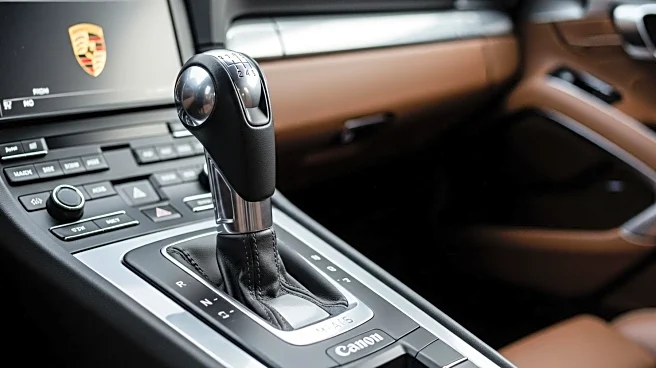What's Happening?
Porsche is actively exploring ways to expand its manual transmission offerings despite a global decline in demand for manual sports cars. Currently, only two manual Porsche 911 models are available in the U.S.—the Carrera T and the GT3. Michael Rösler, Porsche's model line director for the 911, has expressed a commitment to providing customers with manual options, hinting at more special-edition models. The manual-only Carrera T was developed after the rest of the Carrera lineup shifted to dual-clutch transmissions. In the U.S., about 50% of Carrera GTS customers opt for manual transmissions, although the new hybrid powertrain for the GTS is incompatible with manual gearboxes. Porsche is considering extending the production cycle of its models to accommodate more special editions, learning from past experiences with the 991-generation 911.
Why It's Important?
The move by Porsche to expand manual transmission options is significant as it addresses a niche but passionate segment of car enthusiasts who prefer manual driving experiences. This decision could influence other automakers to reconsider their offerings in the face of increasing automation and hybrid technology. For Porsche, maintaining manual options could strengthen brand loyalty and differentiate its products in a competitive market. The strategy also highlights the challenges faced by manufacturers in balancing innovation with traditional driving preferences, potentially impacting supplier relationships and production strategies.
What's Next?
Porsche is likely to introduce more special-edition models with manual transmissions, potentially extending the production cycle of its vehicles to accommodate these offerings. The company is testing GT3 cabriolets, which may indicate the development of a new Speedster model. As Porsche navigates supplier challenges due to low global demand for manual parts, it will need to strategize on maintaining cost-effective production while meeting customer expectations.









